The most common ecosystems in the High Park and Hewlett fire area are lower montane-foothill shrubland, ponderosa pine woodland, mixed conifer forest, and lodgepole pine forest.
Many square miles of these shrubland, woodland, and forest ecosystems were burned during the May and June fires. In August, LightHawk volunteer pilot Dan Evans flew CNHP’s Michael Menefee, Jill Handwerk, and Dave Anderson over the area. Although it was hazy, they were able to take many excellent photos of the burn effects.
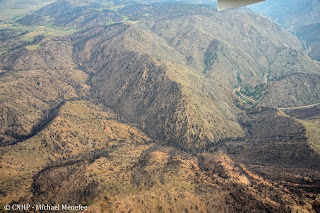
The view down the Poudre Canyon (at right) at its junction with Cedar Gulch (left). Slopes are mostly foothills shrubland dominated by mountain mahogany. Burned stands of mixed conifer are on north-facing slopes.
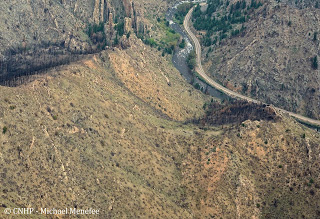
Closer view of burned mountain mahogany (gray circles) against a background of green grass and forbs. It doesn’t look too bad from up here. The shrubs will resprout after being burned.
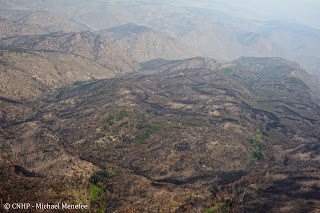
Burn mosaic of ponderosa pine and mixed conifer in the Bear Mountain area, south of the Cache la Poudre River. View is to the north toward the Narrows and Sheep Mountain beyond.
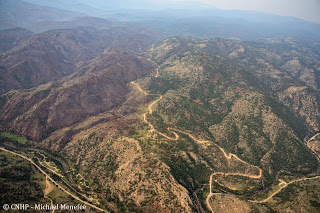
Fire edge at Pingree Road. Burned ponderosa woodland to the left, unburned woodland to the right.
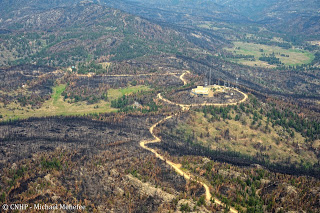
Ponderosa burn mosaic at Buckhorn Mountain.
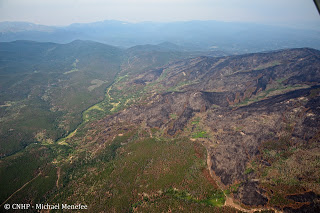
Fire boundary at Buckhorn Road. Burned lodgepole to the right, unburned to the left. There are many beetle-killed trees still standing in the unburned area.
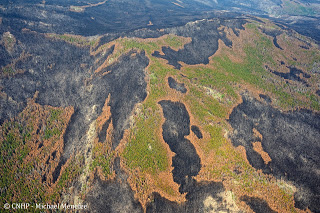
Lodgepole burn mosaic, vicinity of West White Pine Mountain.
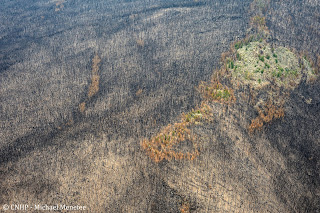
A closer view of burned lodgepole forest.
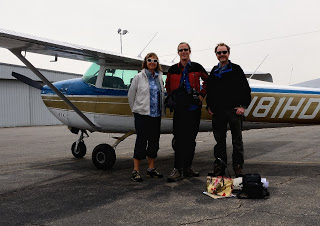
Jill, Michael, and Dave back on the ground after the flight.
Many thanks to Dan and LightHawk. Stay tuned for more High Park fire photos.



